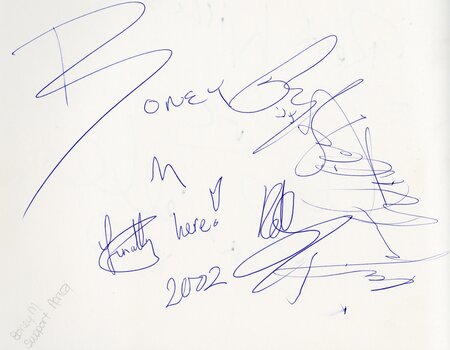
75 Years of Windrush at the Hall
This year marks the 75th anniversary of the formation of the Windrush generation, who began their journey on the HMT Empire Windrush, which arrived in England on 22 June 1948, carrying 492 passengers from the West Indies to fill post-war labour shortages in the UK.
‘Windrush’ refers to those who arrived in the UK from Caribbean countries between 1948 and 1971, to work as drivers, cleaners, nurses and labourers amongst other professions, establishing themselves as a vital addition to Britain’s workforce.
The Hall’s Windrush 75 Concert on Friday 9 June celebrated the impact of the Windrush generation on modern British life, as well as acknowledging the injustices many Commonwealth citizens had to endure at the hands of the UK government. While the concert primarily featured artists of today such as Beverly Knight, Craig David and YolanDa Brown, the Hall itself has a rich, intertwined history with Windrush, going back decades to the early twentieth century until the modern day. Here are some of the key members of the Windrush generation who have graced our stage:
Dudley ‘Cuddly Dudley’ Heslop (1924-2011)
Noted for being ‘Britain’s first black rock & roller’, the Jamaican singer and actor sang at the Hall three times, between 1959 and 1960. Heslop emigrated to Britain in 1947, six months before the Empire Windrush, on the SS Tilapa, a Fyffes banana boat that carried the first Jamaican immigrants to Britain after the Second World War.
Lord Kitchener (1922-2000)
The Trinidadian calypso musician performed at the Hall on 31 July 1955 at The First Caribbean Carnival in London, in aid of The Commonwealth and Colonial Children’s Nursery Fund. He toured Jamaica for six months in 1947-1948 with fellow calypsonians Lord Beginner and Lord Woodbine, before they took passage on the Empire Windrush. Arriving at Tilbury Docks, Kitchener performed his specially-written song London Is the Place for Me in front of cameras for Pathé News.
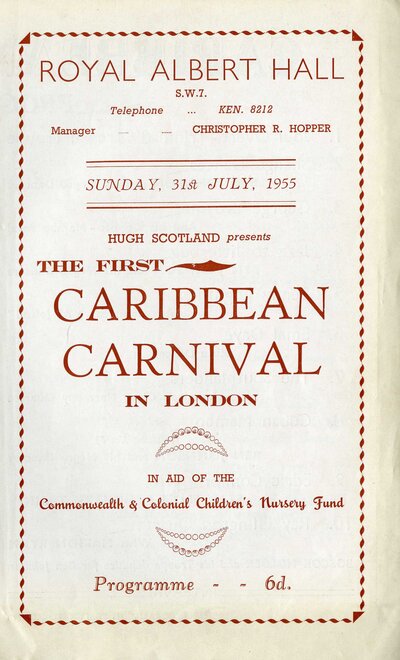
Boscoe Holder (1921-2007)
Trinidad and Tobago’s leading contemporary painter, and also a dancer, choreographer and musician, Boscoe Holder sang at the Hall twice – at The First Caribbean Carnival in London in 1955, and at the Daily Mirror Golden Ball in 1965.
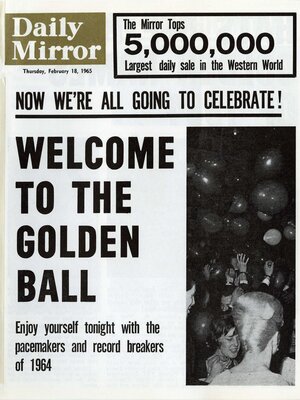
Russ Henderson (1924-2015)
Generally considered to be one of the founding organisers of Notting Hill Carnival, Russ Henderson was a Trinidadian jazz musician who played the piano and steelpan. After settling in England in the 1950s, he performed at the Hall three times with his Trinidad Steel Band – in 1958 at the King Flight Carnival, in 1961 at the Nurses Ball in aid of the Nursing Mirror Nurses and Midwives Fund, and in 1966 at the Royal Army Service Corps and Royal Corps of Transport Association First Rally.
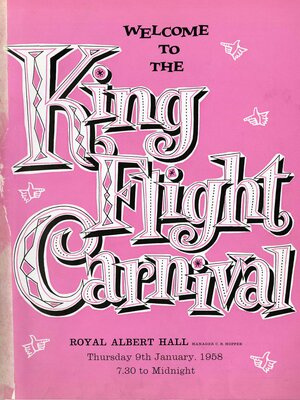
Professor Stuart Hall, Cultural Theorist (1932-2014)
The influential sociologist and cultural theorist Stuart Hall spoke at a Campaign for Nuclear Disarmament Public Meeting, held at the Hall on 13 November 1961, the height of the Cold War and a time when public concern about a nuclear threat was very high. Hall originally emigrated to Britain from Jamaica in 1951 on a Rhodes scholarship to Oxford University. Along with his univesity colleageus, he pioneered the field of research known as ‘British Cultural Studies’ during the mid-1960s.
Vernon Vanriel, boxer (b.1955)
A professional boxer, Vernon Vanriel has lived a tumultuous yet captivating life. He fought at the Royal Albert Hall four times, from 1982 to 1984. During one of his bouts, on 18 January 1983, he became the first black British boxer to publicly speak out about how exploitative the sport was at the time, a move that unfortunately cost him his career.
Vernon was one of nearly 100 members of the Windrush generation the Home Office recently admitted it had wrongly prevented from re-entering the UK after he was left stranded in Jamaica for over a decade.
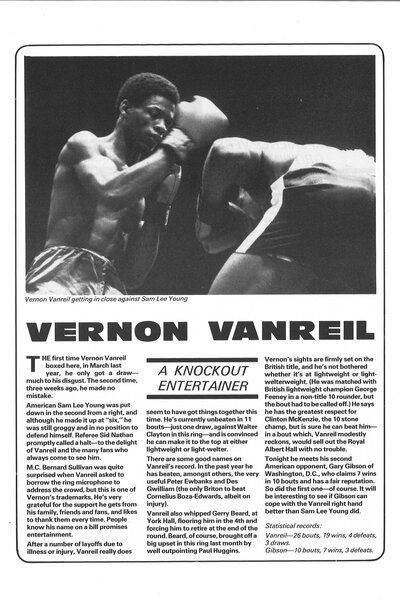
Liz Mitchell of Boney M. (b.1952)
The lead singer of Boney M. performed at the Hall four times with the group between 1989 and 2015. She moved to North-West London from Jamaica, aged just 11, having not met her parents since she was a baby. Spotted in 1976 by record producer Frank Farian, Liz was chosen to join the ranks of the newly-created influential disco-funk group responsible for such massive hits as Daddy Cool, Ma Baker, Mary’s Boy Child and Rasputin.
